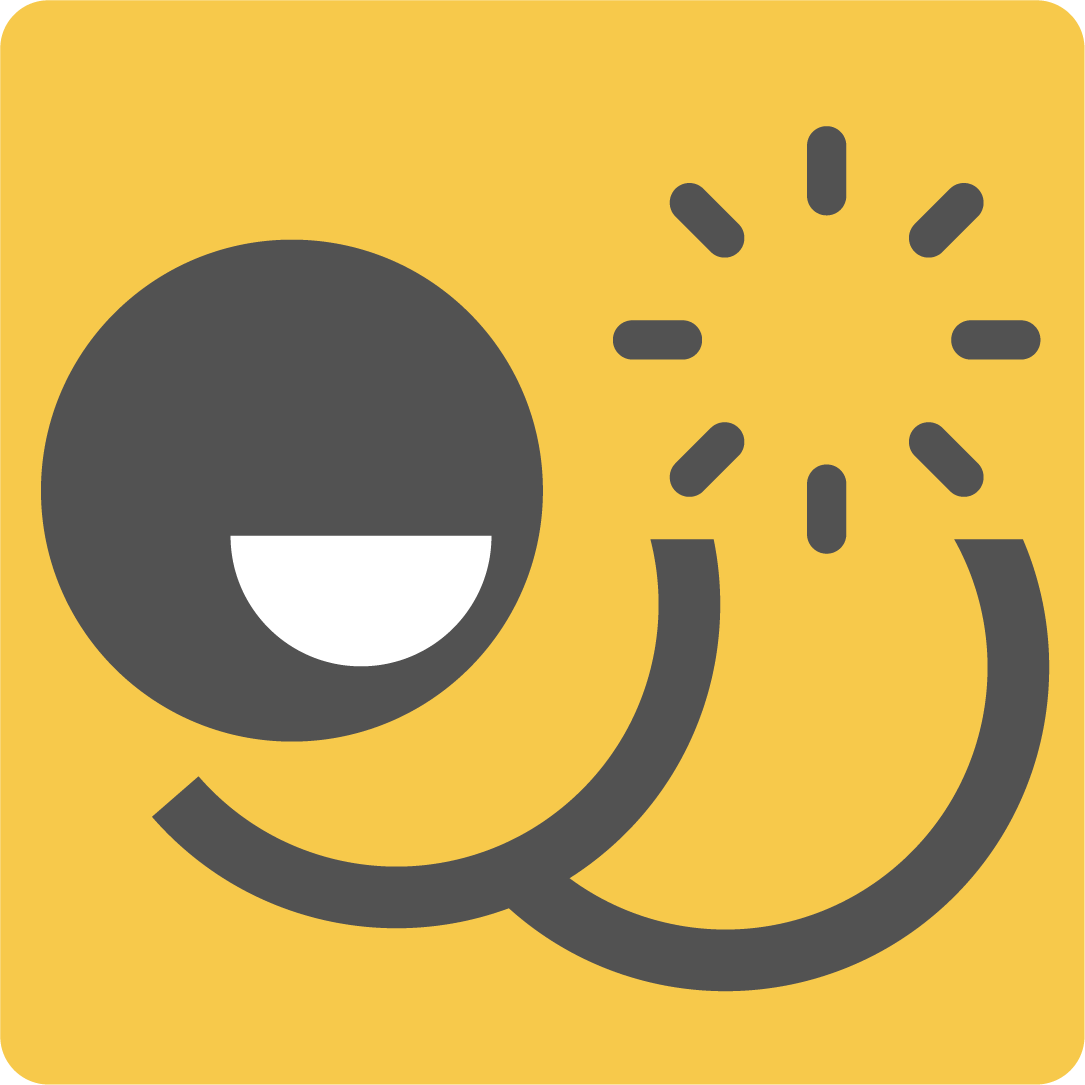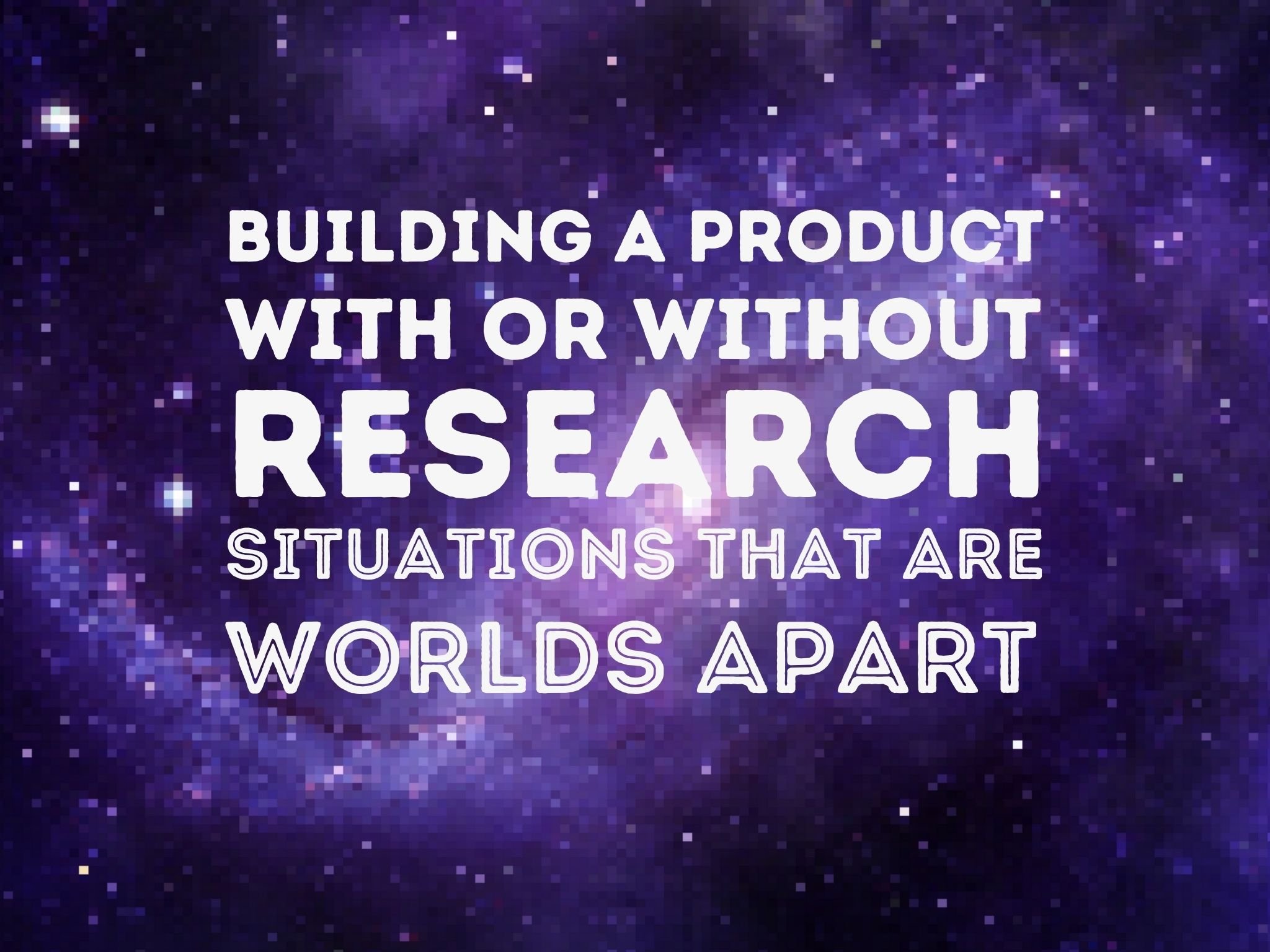Building a product with or without research: situations that are worlds apart
What do you do when you need to build something and you don't have research to build with and from?
I want to say it's two different worlds but it's at least four different worlds. You could use research and be inclusive all around, have research and be not so inclusive, have research and be reluctant to be influenced by it. You could not have research and be advocating to learn from the people involved with and affected by what you make.
This is an exercise to think through situations I've been in, consulted with, and navigated regarding using UX research to inform projects and product decisions.
In each situation even if there's negative situations or challenges, which is reasonable and consistent with some projects I've experienced, I then and now try to find the opening for how things can improve. In this case seeing improvement as getting more skill, confidence, practice with inclusive learning about the products audiences. Include audiences at least starting with the end users and the organization with the intent to also get to including the rest: team, you, and world.
| SCENARIO: you have research that includes both your users and organization | ALTERNATE SCENARIO: or you don't have that research | CHOICE: so then you choose to | GOAL: hopefully that means what you do next is |
|---|---|---|---|
| and it was created with inclusion, with your team, with other key folks in your organization, and especially with people in your user audience | research exists and some others on your team were involved, you didn't know then, but now you know so get that info and get involved, the research exists, you can choose to make use of it and participate | understand the goals and needs of your audiences by participating in the process of learning, | put this learning to use on projects (see row "and it is put to use on projects") |
| you have research, but it was not created with inclusion, leaving out teams | maybe it's an organization status hierarchy thing, maybe some roles were sent a document but not the whole team, maybe some people like to be in-the-know as a status thing, hard to say, in any case it's difficult to get access to the research | have a vague understanding of the needs of your users or a relatively OK understanding but not enough context to make it practical to influence what you build next | request to be involved, part of the research process planning/doing/synthesizing |
| and it is put to use on projects | someone else has research and they're putting it to use, why are you or your team not also participating? something fixable here to get everyone connected | have time to make meaningful practical use of what you learned about your audiences and how what you make affects them | keep the learning going, keep it iterative and practical throughout the life of a product/service/project |
| but not put to use on projects, this maybe performative theatrical work that was a research project turned into documents or meetings without practical use by your team, research like this feels like a waste of time in this form | not put to use on projects because the research work isn't happening for your product, you probably have a stack of features to build that have not enough basis in what a real human needs or wants and their living context, the product is guesses stacked on confidence | possibly don't know what you don't know though, likely feel like something is missing, probably have some indication of problems through product reviews, customer support messages, or customers venting in sales meetings, choose to try to know more and do better with inclusive learning | believe the situation can improve, learn how others make products inclusively, start somewhere trying to learn about your users and overall product audiences, even ask for help |
Context and encouragement
A table doesn't seem to be the ideal visual or format for this exploration of scenarios but it's useful to get started. And I think it's interesting to share work in progress.
What of these situations resonate with you? Do they seem stacked to far on assumptions like having design and user research is something most people who build products are at least considering if not doing?
If people want to learn it's at least possible to get the new habits going. Doing the research inclusively across roles and involvement with the end users audience, it's learnable. And it becomes so many good things when it's wanted.
Things are tougher when learning with research is truly not wanted
It's probably worth weaving in the negative scenarios too. Even then when I do I want to make sure I include a way forward, through, and out of the negative. It's possible to include others and make research informed products even when difficult and facing resistance. Also I know in some situations organization cultures are so reluctant to be influenced by learning from their audiences that it's beyond tough, near impossible. In other situations I've seen research done so theatrically the discoveries don't happen. That's when the research is being told what it needs to learn instead of learning just what is, meeting people and context where it might be.
The negative is important to discuss too. Probably the most important thing to figure out how to turn those situations into something better when possible. Not trivial to do though and not something I would be cavalier about in assumptions and recommendations. Because I think when we encounter the toughest negatives, those resistant to learn with others and share power, we're next to super tough power structure challenges with symptoms of power being abused by egos, discriminatory beliefs, elitism, sexism, racism, and other dominance cultures.

